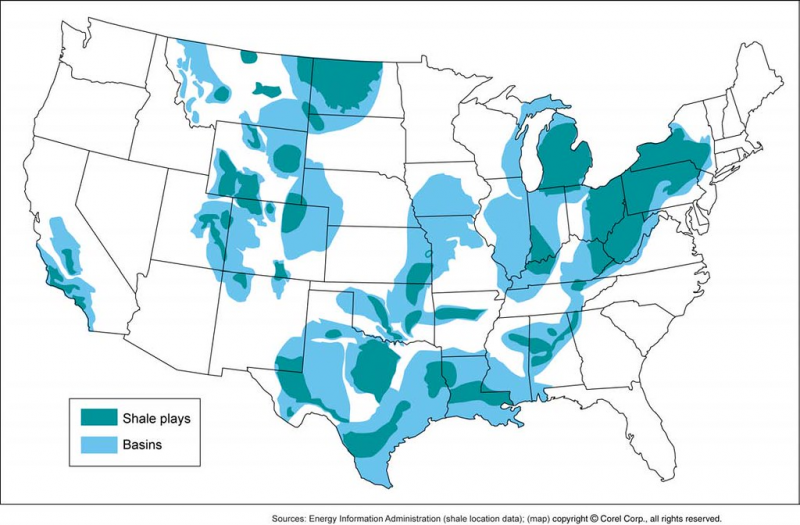
Mineral rights—the ownership of, or right to access underground natural resources—have become an increasingly important topic as oil and natural gas production has boomed in the United States in recent years. Thanks to advances in oil and natural gas extraction technology, the large increases in production has also led to large increases in the value of minerals.
But what are minerals? Who owns them? Why do we care? What should you do if you own minerals?
What are minerals?
Broadly speaking, “minerals” is a catch-all term for everything below the Earth’s surface. Minerals may include rocks, dirt, ground water, oil, natural gas, precious metals, and other natural resources. Because of the shifting of continents and the rise and fall of oceans, lakes and rivers over hundreds of millions of years, these resouces are unevenly distributed through various parts of the world, including within the United States.
In other words, there are some areas in the United States where there are large deposits of oil, natural gas, and other resources of great value, while in other areas there is little more than worthless rock and dirt.
Oil and natural gas deposits, specifically, exist mostly in areas that were sea floors many millions of years ago. Without putting everyone to sleep with an in-depth geology lesson, we call oil and natural gas “fossil fuels” because they are literally made of fossils—dead plant and animal matter that sank to the bottoms of these ancient seas, got buried under many layers of rock and dirt, and became oil and natural gas molecules as they decomposed.
So, what are “mineral rights?”
Mineral rights are the ownership of these underground minerals. This ownership allows for the mining and extraction of the valuable natural resources mentioned above, either by the owner, or by a person or company to whom the owner has given permission.
Most land owners in the United States also own the corresponding minerals below their property. For example, if someone owns 40 acres of land (or even just a home in a suburban area), they also own all the minerals directly below their property. The United States is the only country in the world that recognizes the ownership of minerals as the private property of citizens. All other countries view minerals as the property of the government.
In some cases, a previous owner of the land may have “severed” the minerals, meaning they sold the land on the surface while keeping the underground minerals as their own. If you live in an area where minerals are valueable, it is worth checking the deed to your house or other property to see if you own the minerals, too.
Stay tuned for our upcoming posts:
What to do if you own minerals
Who buys minerals?
Royalties, leases, and interests… what are the differences, and why should you care?
